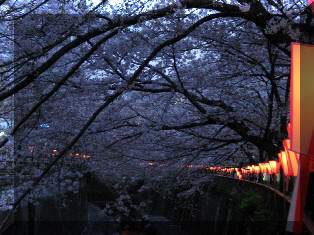

J-Pop Exchange Exclusive Interview with Yusaku Kiyama
Yusaku Kiyama J-Pop Exchange Radio Show
Exclusive Interview
Transcript
SeanBird (J-Pop Exchange):
Hi
Yusaku, thank you for taking the time to speak with us…
Yusaku Kiyama:
Hello, thank you very much.
SeanBird:
I
gather that music has always been important in your life, but you
didn’t pursue a professional music career until later in life.
Can you tell us something about your early life experiences?
Yusaku Kiyama:
After graduating from university, I became a salary
man and a company employee. After that, I got married, and I am now
a father with 4 children.
SeanBird:
And
what was your early music experience like?
Was it primarily a hobby?
Did you pursue musical training of any kind?
Yusaku Kiyama:
When I was young, I played piano, and I loved music
and those kinds of things. When I got to university, I formed a band
in which I sang as the vocalist. Although singing in this band made
me understand how wonderful it was, I couldn't make the leap to try
and earn my living through singing. In the end, I gave up my dream
of becoming a professional musician at an early age, and lived my
life like this.
SeanBird:
You
burst onto the J-Pop music scene as a result of your success in the
“Uta suta!!” singing
competition. When
exactly was the competition?—And how did your involvement with the
competition come about?
Yusaku Kiyama:
Yes, so... I went to an audition in 2006. It started
out in a karaoke box in which there was this machine called an
“entry box.” I used it to enter my candidacy for an audition, and
some time later I was contacted by someone from an agency. I was
told that I had made it to the second round of examinations, and
that I would be featured on TV.
SeanBird:
Undoubtedly, your life has changed quite a bit as a result of your
success in the competition and your resulting music career.
Would you mind sharing with us what this means to you and how
you feel about it?
Yusaku Kiyama:
When I entered for the audition, I was almost 40. I
basically thought that it was my last chance.
That's
why I really think I was lucky that there was this show called “Watashita.”
SeanBird:
Your newest album, Memorial, was just released on February 11th
2009. Tell us about
this new album. What
would you like us to know about it?
Yusaku Kiyama:
It was my first album. It's called “Memorial”
because, as the title says, I took out some of the most memorable
things that happened to me, and inserted them into each song. That's
why the major themes are family, the love between a husband and
wife, and also, like, the feeling for my parents, for my father and
mother who raised me. It really has many songs that deal with a lot
of different themes. So, there are songs that you might want to
listen to while you're driving, there are songs that relate to
specific seasons, like “Hanabi” (fireworks), or
“Illumination” which you might want to listen to around Christmas
time. This is an album that I would like an audience from a wide
range of ages, from children, to people of my mother and father's
generation, to hear.
SeanBird:
During this radio show, we just had a chance to listen to 3 songs
from your newest album:
Home, Good Morning, and Eien.
What do those songs mean to you?
Yusaku Kiyama:
First, if I talk about “Good Morning,” this is a song
that you could really listen to instead of your alarm clock; it's
perfect to listen to first thing in the morning. It talks about,
well, you know, when people get up in the morning, they all get up
with all sorts of problems and regrets but, at the same time, they
are also between dreams and reality. It's that kind of a somewhat
mysterious melody. Well, there's also like, a punchline, so I hope
that it will also contribute to people's enjoyment of the song. Now,
“Eien” (eternity) is a love song in which I straight-up sing
my feelings of love for my wife, how I felt for her at the time that
I got married. Really, it's straight love, much different from
“Home.” That's how I'd like people to hear it. And, finally, “Home”
is a family-themed song, in which I sing about the importance of
family. Um... really, it doesn't just talk about how great family
is. Rather, by using casual everyday scenes that I spend with my
children, I sing from
the heart about how grateful I am to my mother and father, who
raised me, and about how important children are.
SeanBird:
In
2008, you released a version of Billy Joel’s Piano Man.
I particularly enjoyed your rendition.
In fact, honestly, I liked it more than Billy Joel’s version.
I particularly appreciate how much emotion comes through in
your version of the song which helps to bring the meaning of the
song to life. What was
the experience of recording that song like for you?
Yusaku Kiyama:
Thank you very
much. I am very happy that you would say something like that. I've
really loved Billy Joel ever since I was a kid. So, actually, the
song that began my debut was “Piano Man.” That's why, well, it might
be strange to say that, when I heard that I would be able to do a
recording, I felt both happy and scared. Um... to be honest, I was
really afraid that I wouldn't be able to sing well. So, I just did
what I could do; I didn't try to copy anybody. Rather, I did the
recording with the idea that I would try to bring out as much of
myself as possible.
SeanBird:
I
gather that Billy Joel is one of your musical favorites and a
musical influence. I
wonder, who are some of your other musical favorites and / or
musical influences.
Yusaku Kiyama:
Yes, that's right. I guess among Japanese artists you
could say, Nakajima Miyuki, or, Ozaki Yutaka. Then, for non-Japanese
artists, I often listened to the artists Bette Midler and Sting.
SeanBird:
Do you have any current or upcoming projects that you
would like to talk about?
Yusaku Kiyama:
The
song “Eien” (eternity) which I just talked about will be
re-cut from the album and released in July.
SeanBird:
How can US fans learn more about your music and your
current projects?
Yusaku Kiyama:
Please look at my homepage for the latest event information. I also
write a blog, so please take a look at it if you have the time.
SeanBird:
In conclusion, is there anything you would like to
talk about or mention that we haven’t discussed thus far?
Yusaku Kiyama:
Yes, I really hope that through the song “Home” I will be able to
convey the importance that I feel for my family in my daily life. I
think that such a feeling is probably common all across Japan, so I
hope that everybody might give the song a listen. Thank you in
advance for your support.
SeanBird:
Thank you again for taking time out of your busy schedule to speak
with us. Good luck with
everything!
Yusaku Kiyama: Thank you very much.